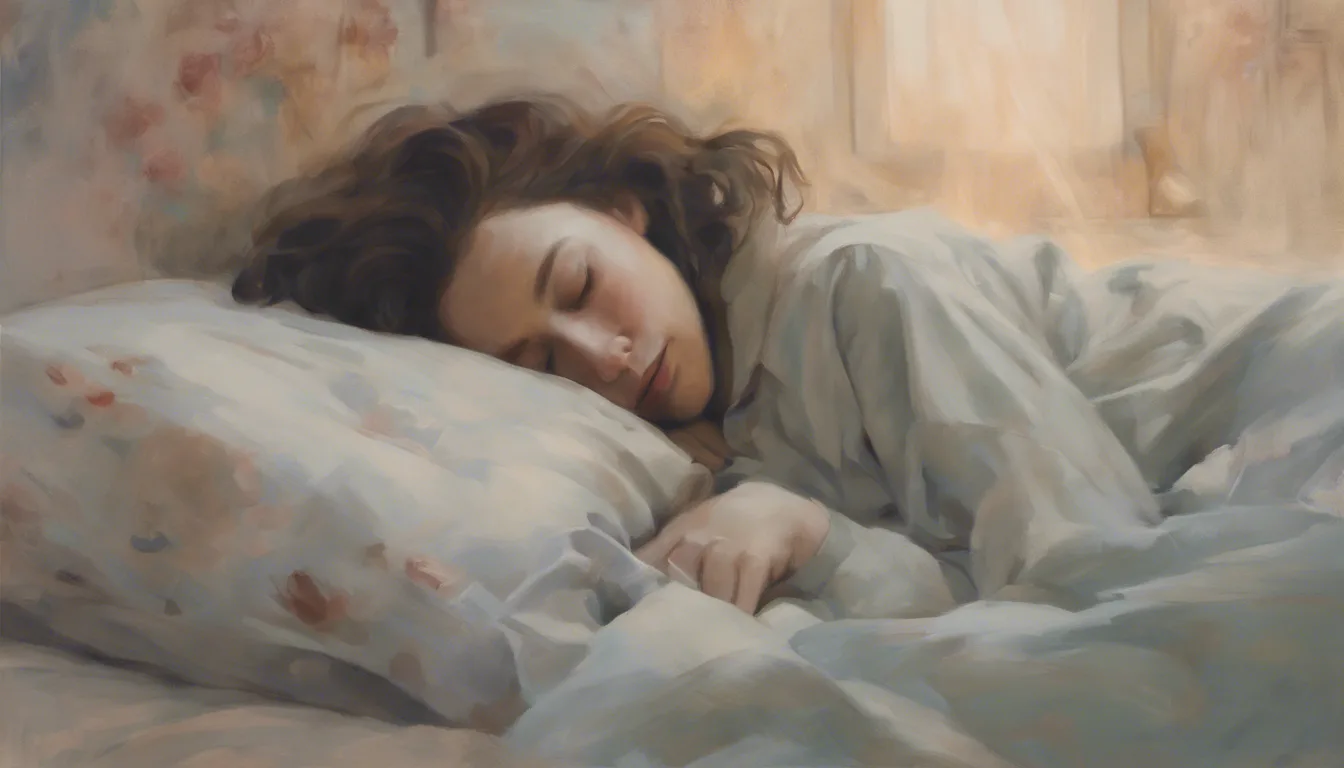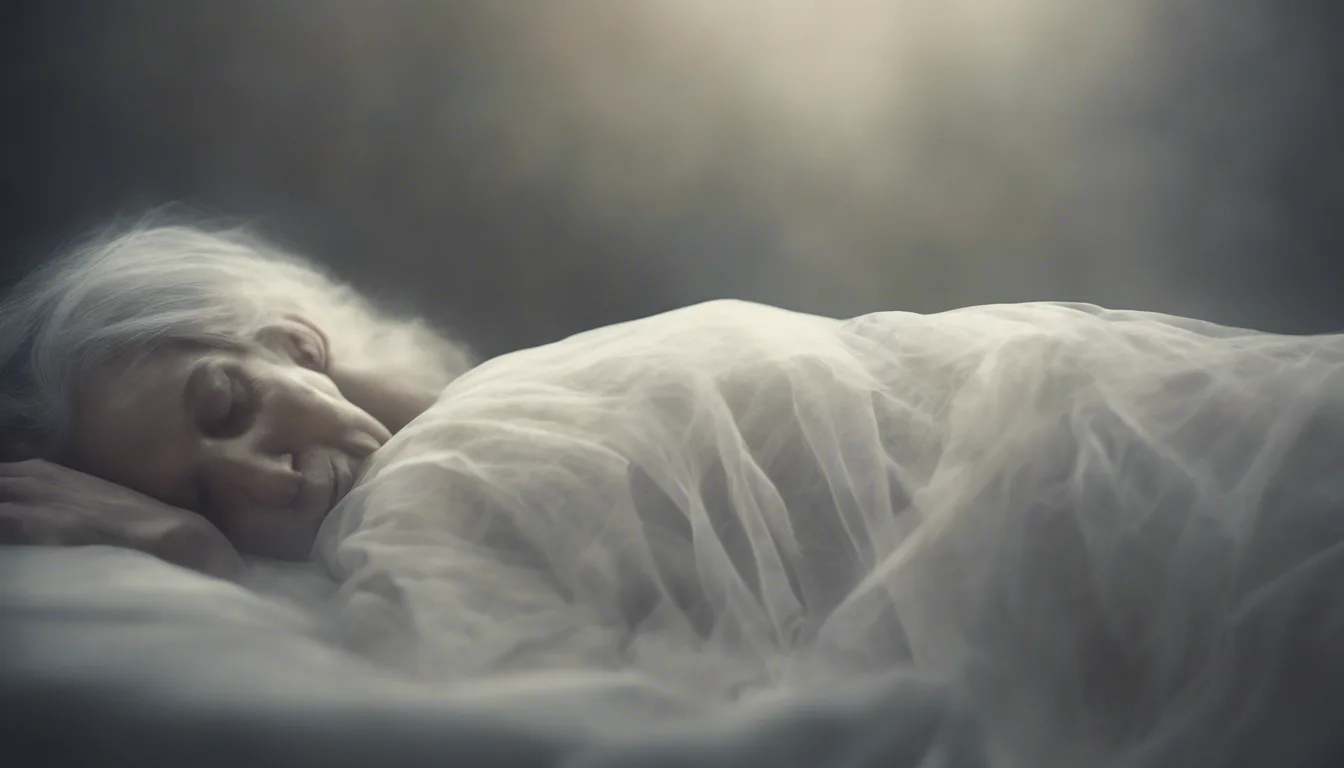8 Demographics of Dreamers with Dead Relatives in Their Dreams
Want a Personalized Dream Interpretation?
Curious about how people like you interpret this dream symbol? Explore personalized interpretations tailored to your demographic. Get personalized insights for free!
Get Free Interpretation Now →Table of Contents
1. Grieving Individuals
When a grieving individual dreams of a deceased relative, it often symbolizes the processing of their emotions and the journey of coming to terms with the loss.

The dream can provide a safe space for the dreamer to explore their feelings, seek comfort, and maintain a connection with the departed loved one.
It can also serve as a way to address unresolved issues, seek guidance, or find closure.
The dream symbol may vary depending on the relationship with the deceased relative and the dreamer's personal beliefs and cultural context.
For some, seeing a deceased relative in a dream can be a comforting and reassuring experience, a way to feel their presence and continue the bond they shared.
For others, it can be a source of sadness, longing, or even fear, reflecting the challenges of the grieving process.
Analyzing the emotions, interactions, and context within the dream can provide insights into the dreamer's emotional state, unresolved issues, and the ongoing process of healing and acceptance.
2. Bereaved Family Members
When bereaved family members dream of deceased loved ones, the emotional intensity and vividness of these dreams can be overwhelming. These dreams often serve as a way for the dreamer to process their grief and come to terms with the loss.

Dreams about dead relatives can take many forms. Some dreams may be comforting and reassuring, while others may be distressing or even frightening. The specific content of the dream will vary depending on the individual's relationship with the deceased and the circumstances surrounding their death.
Common themes that emerge in dreams about dead relatives include:
- Longing and sadness: The dreamer may feel a deep sense of longing for the deceased and may wish they were still alive.
- Guilt and regret: The dreamer may feel guilty about things they said or did (or didn't say or do) while the deceased was alive. They may also regret not having spent more time with the deceased or not having been able to say goodbye.
- Fear and anxiety: The dreamer may be afraid of dying themselves or of losing someone else close to them. They may also be anxious about the future and what it holds for them.
- Acceptance and closure: The dreamer may come to terms with the death of their loved one and find a sense of peace and closure. They may also feel a renewed sense of connection with the deceased.
Dreams about dead relatives can be a powerful and transformative experience. They can help the dreamer to process their grief, come to terms with the loss, and find a new sense of meaning and purpose in life.
3. People with Unresolved Emotional Issues
Dreaming of deceased loved ones can be a highly emotional experience, particularly for those grappling with unresolved emotional issues. These dreams often elicit feelings of sadness, longing, guilt, or regret, leaving the dreamer feeling emotionally unsettled upon waking.
-
Unresolved Grief: People who have not fully processed the grief of losing a loved one may experience dreams of them as a way of revisiting and working through those emotions. The dream might reflect their longing for the deceased person's presence, or it could be a way of expressing their unresolved feelings of sadness or anger.
-
Guilt and Regret: Individuals harboring feelings of guilt or regret about past interactions or actions towards a deceased loved one may encounter dreams of them. These dreams might symbolize their desire to make amends or apologize for past mistakes.
-
Seeking Closure: Dreams involving deceased relatives can be a way for people to seek closure after a loss. They might dream of the deceased person to gain a sense of peace or understanding, or to say things they were unable to say while the person was alive.
-
Fear of Death and Mortality: For those with unresolved emotional issues surrounding death and mortality, dreams of deceased loved ones can be a manifestation of their fears and anxieties. These dreams might reflect their concerns about their mortality, the mortality of others, or the inevitability of death.
4. Individuals with Cultural or Religious Beliefs About Death
- Cultural or Religious Beliefs About Death:

-
For individuals with strong cultural or religious beliefs about death, dreams involving deceased relatives can hold significant spiritual and emotional weight.
-
In cultures where ancestor worship is practiced, dreams of dead relatives may be interpreted as a sign of continued communication or guidance from the deceased.
-
In some religions, dreams of deceased loved ones are believed to be a form of visitation or a way for the departed to convey messages or warnings to the living.
-
Dreams of dead relatives may also be a way for individuals to process grief, seek comfort, or come to terms with the loss of a loved one.
-
The emotional tone of the dream, the actions of the deceased relative, and the overall context of the dream can provide insights into the dreamer's current emotional state and unresolved issues related to the deceased.
Back to interpretation of dead relatives



